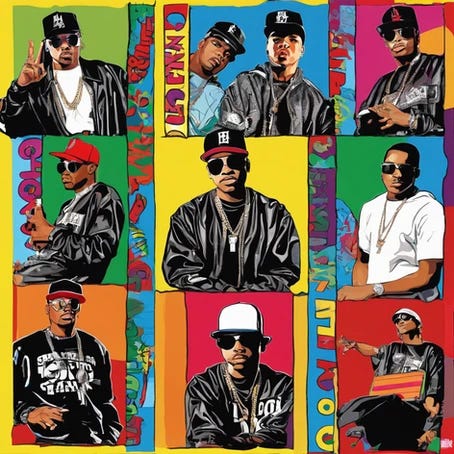Straight Outta Compton and Sign o’ the Times: How Music Shaped My View of Inequality
December 1, 2024
I remember the first time I heard Straight Outta Compton by N.W.A. I was too young to grasp its significance fully but old enough to feel its weight. The raw energy, the unapologetic anger, and the truth that oozed from every lyric hit me like a lightning bolt. It wasn’t just music—it was a revelation.
Growing up in non-affluent areas, I didn’t need anyone to tell me life wasn’t fair. I lived it. I saw poverty up close, felt the stigma of being a welfare kid, and watched as people around me struggled against systems designed to keep them down.
But Straight Outta Compton gave those struggles a voice, an unapologetic, raw perspective. It vividly depicted systemic injustice, police brutality, and survival in a world stacked against you. These weren’t stories I saw in textbooks or on TV. They were the lived experiences of real people, delivered with urgency and passion.
Before N.W.A., Prince’s Sign o’ the Times was another album that profoundly shaped my understanding of the world. While N.W.A. confronted injustice with the needed fiery anger to wake people up, Prince approached it with a haunting introspection. The title track was like a news report set to music, laying bare the societal ills of the era: AIDS, drug addiction, violence, and systemic inequality. Prince’s ability to blend despair with hope—acknowledging the pain but urging us to find a way forward—was a different but equally powerful call to action. Sign o' the Times is my number-one album of all time. It just hits me.
When I joined the military, I saw a better—though far from perfect—system of equality. The chain of command didn’t erase bias, but it enforced a structure where effort mattered. To some degree, everyone wore the same uniform in more ways than one. It was a step toward fairness, but even there, inequality seeped through cracks in the foundation.
What I don’t understand is how we keep backsliding. The lessons of albums like Straight Outta Compton and Sign o’ the Times, the outcries of countless movements, and the undeniable realities of inequality are as visible as ever. Yet, the progress feels stalled—sometimes even reversed.
To me, the war on poverty is the biggest threat facing our national identity. It’s not just an economic issue; it’s a moral one. Poverty erodes the very fabric of equality, feeding cycles of despair and stripping away the promise of opportunity. How can we claim to stand for liberty and justice for all when we allow so many to struggle in the shadows of affluence?
Both Straight Outta Compton and Sign o’ the Times taught me to see the world for what it was, not what I wished it to be. They pushed me to question authority, recognize my privilege, and understand that fairness isn’t a given. It’s something people fight for every day.
More than three decades later, these albums still resonate. They’re reminders of the work left to do and the power of art to shake people awake. They didn’t just mold my mind—they made me care. And for that, I’ll always be grateful.


